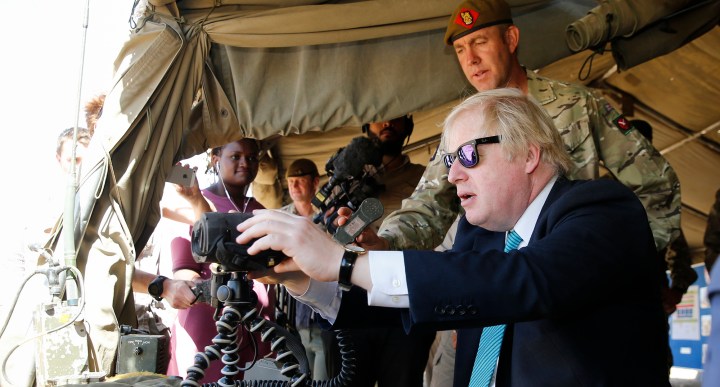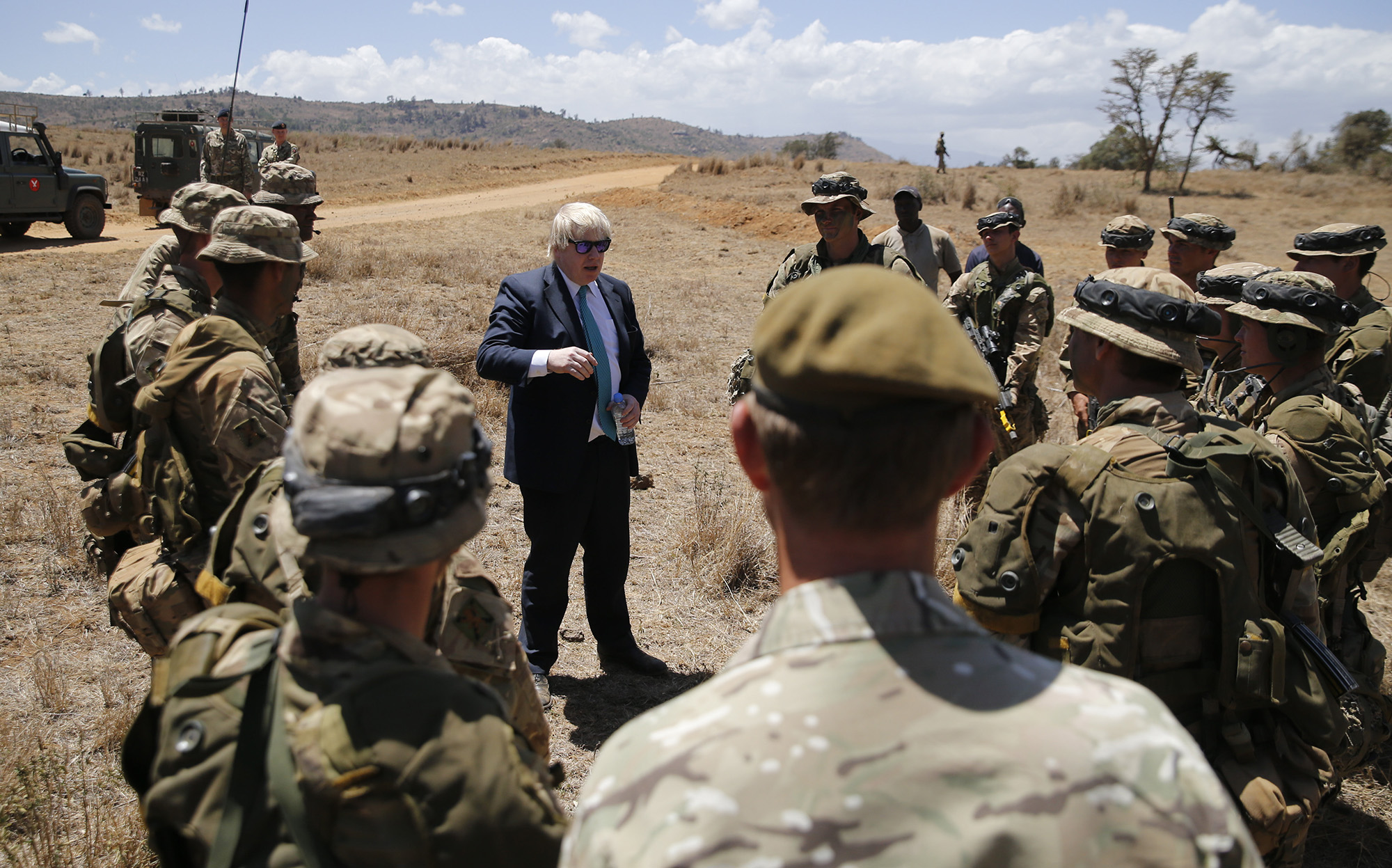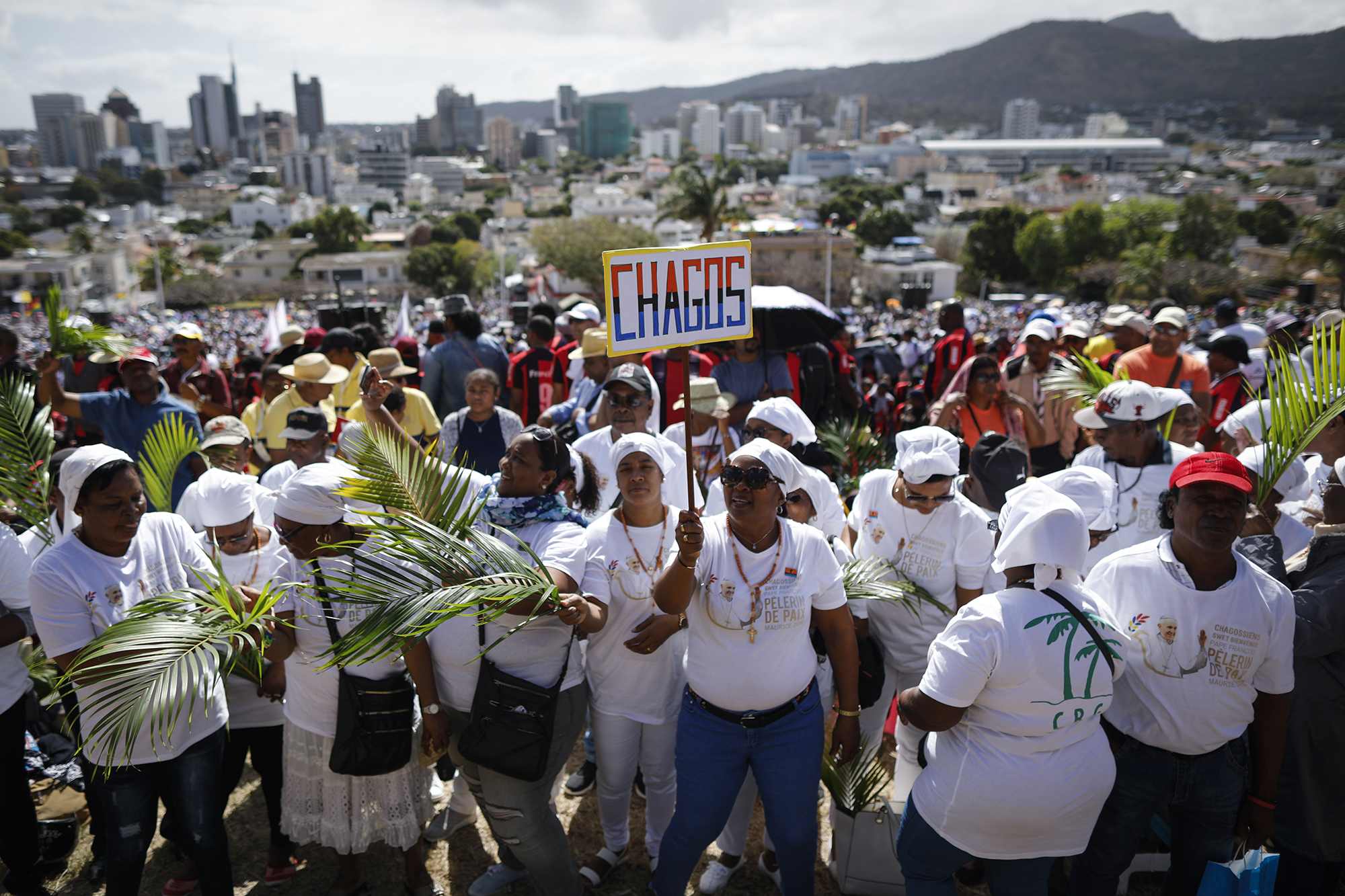Declassified UK
UK could double supply of medical ventilators with money spent on foreign military bases

The UK is spending £141-million on its sprawling network of foreign military bases while under-investing in healthcare at home, new figures obtained by Declassified UK reveal. For the same price, Britain could more than double its supply of medical ventilator machines, which are critical to help victims of coronavirus continue breathing if they are hospitalised.
On Monday, the National Health Service said it had around 5,900 of the life-saving machines available but may need as many as 20,000 to defend its most vulnerable citizens from the coronavirus pandemic.
Each machine costs around £15,450. This means more than 9,000 ventilators could be purchased by the UK with the money it spends on foreign military bases.
Britain has one of the largest networks of offshore garrisons of any major power, with most dating back to colonial times. More than half are in countries that are run by repressive regimes.
Many bases are located in areas of strategic importance to British oil companies, despite climate change being another serious threat to the UK public – with unprecedented rainfall and major winter flooding hitting large parts of the country this year.
Global power?
Britain’s Ministry of Defence (MOD) has provided Declassified with figures for “facilities management, rent rates, utilities and communication costs” at all of its permanent bases in foreign countries for 2018-19.
The figures reveal the true cost of maintaining this global force projection network when questions are being asked about UK defence priorities in the face of a pandemic that its health services are struggling to control.
Khalfan al-Badwawi, an exile from Oman, which hosts a major UK military base, and a former intensive care nurse, told Declassified: “These shocking figures show the greed of Britain’s elite, who are spending money on foreign military bases instead of intensive care units for their most vulnerable.”
Al-Badwawi added: “Many of these military bases support repression in countries where British energy companies are causing climate change. The UK public should urgently rethink whether their state is protecting them properly or wasting money trying to cling on to the last parts of their empire.”
- Cyprus, £80-million
The UK’s military bases on Cyprus, known as “Sovereign Base Areas” at Akrotiri and Dhekelia, cover 253km² and house over 3,500 personnel. The Royal Air Force has used Cyprus as a launch pad for bombing Iraq, Libya and Syria, provoking protests from anti-war activists on the island.
Last year, the UK spent £23.2-million building new accommodation for troops and their families on Cyprus, as well as £13-million on a new primary school, according to a report by the MOD’s Defence Infrastructure Organisation.
During the 1950s, when Cyprus was still a British colony, the British army suppressed anti-colonial fighters by torturing guerrilla suspects. Britain granted independence in 1960 on the proviso it could keep several bases on the island.
The bases have long been opposed by many prominent Cypriot politicians and in 2001 there was rioting outside the Akrotiri airbase. However, there is no sign Britain will leave Cyprus.
- Canada, £27.9-million
The British army has an enormous military base at Suffield in Alberta, Canada. More than 400 British soldiers are permanently based there, along with over 1,000 vehicles including Challenger 2 tanks.
British oil company BP has major investments in Alberta where it operates several tar sands fields, which environmentalists say is the most polluting method of fossil fuel extraction. The Suffield site was originally used by Britain for chemical warfare testing during the Second World War.

Boris Johnson at the British army base in Kenya, 2017 (Photo: EPA / Thomas Mukoya)
- Kenya, £9.3-million
The UK military’s vast base at Nanyuki, Kenya provides access to 13 training grounds, which are used for preparing troops before they deploy to Afghanistan and elsewhere. Some 100 UK personnel are permanently based in Kenya, and are believed to include the army’s special forces, the SAS.
During the 1950s, the British army suppressed anti-colonial fighters in Kenya by using concentration camps where prisoners were tortured and even castrated. After independence, the British army was able to retain its base at Nanyuki. In 2002, the MOD paid £4.5-million in compensation to hundreds of Kenyans who had been injured by unexploded weaponry fired by British troops.
- UAE, £7.7-million
The Royal Air Force’s 906 Expeditionary Air Wing uses Al Minhad airbase in the United Arab Emirates (UAE) for flying troops on to Afghanistan. It also provided support to the UK’s bombing of Libya in 2011. In 2013 as many as 100 British military personnel were stationed in the UAE.
The UAE is a Gulf dictatorship where bloggers such as Ahmed Mansoor are in prison for calling for reform. According to Human Rights Watch, “families of activists suffer unrelenting harassment at the hands of the state security apparatus”. British oil giant BP produces around 160,000 barrels of oil per day in the emirate of Abu Dhabi.
- Bahrain, £4.2-million
Bahrain hosts the UK’s first new major naval base east of the Suez Canal since 1971, known as HMS Jufair. Agreed in 2014, the base, at Mina Salman port in Manama, began operations in 2018 and “will be the hub of the Royal Navy’s operations in the Gulf, Red Sea and Indian Ocean”, the UK government states. The King of Bahrain paid for the establishment of the base but its running costs are now covered by the British taxpayer.

Prince Andrew, who officially opened HMS Jufair, laughs with the King of Bahrain at the Royal Windsor Horse Show in 2017 (Photo: EPA / Facundo Arrizabalaga)
Bahrain is a tiny Gulf island run by an absolute monarchy where pro-democracy activists are imprisoned, tortured or killed for speaking out. Declassified documents show the UK Foreign Office regards Bahrain as being of “strategic importance” and “critical to the protection of Gulf shipping lanes and therefore global energy supplies. Around 30 percent of the world’s daily exports of oil by tanker pass through Bahraini waters.”
- Oman, £3.5-million
In 2017, Oman agreed to allow the Royal Navy to use a port in Duqm and establish a “joint logistics support base”, which is deep enough for Britain’s new aircraft carriers to access.
Oman is another Gulf dictatorship which is heavily dependent on British military support for the survival of its ruling family. Political parties are banned and independent media has been shut down. When Oman’s ruler Sultan Qaboos died in January after half a century in power, Prime Minister Boris Johnson and Prince Charles rushed to Oman to welcome his unelected successor, Qaboos’ cousin Haitham.
BP owns a 60% stake in what it calls Oman’s “giant Khazzan gas field” — a very high proportion by international standards, which leaves the Omani state with just 40%.
- Chagos Islands, £3.4-million
The US uses Diego Garcia, part of the British Indian Ocean Territory, as a long-range airstrip for bombing the Middle East and routed rendition flights through the base. The Royal Navy and Marines maintain a small number of personnel on the Chagos Islands.
From 1968, the British government forcibly removed the entire population of 1,500 people from the Chagos Islands, in contravention of international law. Britain then allowed the US military to build a base on Diego Garcia in return for a discount on Polaris nuclear submarine technology. Despite a long campaign and legal judgments in their favour, the original inhabitants and their descendants have never been allowed to resettle on the islands.

A group of Chagossians demand to be able to return to their islands in 2019 during Pope Francis’ visit to Mauritius, where they were forcibly transported by Britain (Photo: EPA-EFE / Dai Kurokawa)
- Qatar, £2.6-million
The Royal Air Force’s No 83 Expeditionary Air Group is based at Al Udeid airbase, which is run by the US military in Qatar. Aircraft at the base have been used to carry out bombing raids directed at ISIS in Iraq and Syria, but its “area of responsibility” also extends to the “southern end of the Arabian Gulf”.
This is one of Britain’s four military bases in a Gulf dictatorship. Qatar is the world’s largest supplier of liquified natural gas and Anglo-Dutch energy giant Shell has a 30% stake in the huge Qatargas 4 field.
- Belize, £1.4-million
The British Army Training Support Unit Belize (BATSUB), located at Price Barracks near Belize City, is manned by 12 permanent staff. In 2018, the MOD spent £575,000 on a new water treatment plant for the barracks.
Belize is one of the world’s most biodiverse countries, home to “critically endangered species” and rare archaeological sites. Declassified recently revealed that British troops have access to one sixth of Belize’s land, including a protected forest area, for jungle warfare training, which includes firing mortars, artillery and “machine-gunning from helicopters”. At times, British forces in Belize have colluded with its neighbour Guatemala to hunt down left-wing groups in Central America.
- Singapore, £1.2-million
The UK keeps a naval logistics base at Sembawang Wharf in Singapore, where eight British military staff are permanently based. In 2016, Britain’s then-defence secretary Michael Fallon noted Singapore’s proximity to China and highlighted how trade worth £3-trillion a year is “passing through the South China Sea”. The British army told Declassified: “Singapore is a strategically important location for commerce and trade.”
Human rights groups say Singapore’s ruling party has an “authoritarian grip” on power and draconian laws restricting protests while its press freedom rating is lower than Myanmar, Russia and Zimbabwe.
The Brunei exception
The UK also has three garrisons in Brunei, at Sittang Camp, Medicina Lines and Tuker Lines, where around half of Britain’s Gurkha soldiers are permanently based. However, this base is paid for by the repressive Sultan of Brunei, one of the world’s richest men who sparked outrage in 2019 with plans to stone homosexuals to death.
The Sultan’s patronage makes Brunei the only foreign military base that is profitable to the UK, earning a modest £300,000 last year. Shell has major fossil fuel interests in Brunei. Declassified files show that in 1980, British troops in Brunei were based “on land provided by Shell and in the middle of their headquarters complex”.
Grand total
The total cost of these foreign military bases last year came to £141.2-million but this does not include all UK military forces based overseas. For example, the government has said that it has 240 military or MOD staff based permanently in Saudi Arabia alone.
The figures also do not include the British army’s Gurkha recruitment facilities in Nepal, most of whom go on to serve in Brunei or with Singapore’s police, nor the remnants of British army facilities in Germany that have been substantially reduced since 2010. The UK’s military bases in British territories such as the Falklands, Gibraltar and Ascension Island cost a further £48.5-million to run last year. DM
Phil Miller is a staff reporter for Declassified UK, an investigative journalism organisation focusing on Britain’s foreign, military and intelligence policies. Follow @DeclassifiedUK and @pmillerinfo for updates.















 Become an Insider
Become an Insider